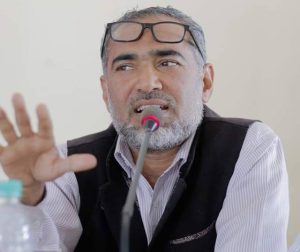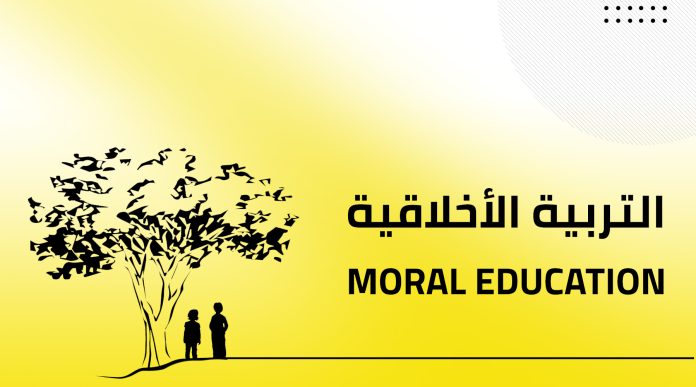
Macaulay, the creator of the current education system was against the inclusion of religion, spirituality, moral science and related subjects in the education system. His position was very clear, that ‘our education system’ (i.e. the education system of the then British government) should offer stability to the British government and make educated people employable.
Macaulay’s report on moral education suggested that religious and moral education should not be the responsibility of the government. According to him, religion is a personal affair of every individual, so their education should be left to the person’s family and community centres.
Criticising the British government’s expenditure on religious education, Macaulay wrote, “Why should we spend it on those who sit in church and supplicate?”
Macaulay’s antipathy towards religion was a well-known fact.
After Independence, discussion and debate on the country’s education system began, meeting our social needs and the needs of the newly formed nation. Therefore, the Ministry of Education of Independent India gradually formed various committees to formulate policy in this regard. We are mentioning some of the notable committees and their recommendations in this article. First, we presented the highlights of “The Committee on Religious and Moral Instruction.” This committee submitted its report in 1959. A brief overview of the second important committee is presented below.
The Secondary Education Commission
The Central Advisory Board of Education (CABE), established in 1920 during the British rule, is still in place today. One of the main objectives of this Board is to guide and give direction to the country and the various states in the field of education. The head of this Board is usually the Minister of Education. It is supposed to meet annually. However, it has not been doing so for many years now.
This Board is also mentioned in the National Education Policy (NEP) 2020. Paragraph 25 of NEP 2020 deals with the plan to award stability to the Board and further improve its performance. The 14th meeting of this Board was held in January 1948, a few months after Independence. The meeting advised the Ministry of Education to form a commission to review the secondary education system and suggest suitable reforms.
Maulana Abul Kalam Azad was presiding over the Board at that time. Maulana Azad presided over this most important board (CABE) from 1948 to 1958. The Board was chaired by others in 1951, 1954 and 1957. The amount of research work that should have been done on Maulana Abul Kalam Azad’s tenure as the chairman of this Board and as the Education Minister has not been done. Our research scholars and professors should pay attention to the glaring lacuna found in the above topic of research.
The Board, in its three successive meetings held every year, recommended to the Government of India that a Commission should be appointed to review Secondary Education. The government accepted this recommendation in 1952 and constituted a commission consisting of the following persons: Dr A Laxmanswami Mudaliar, Vice-Chancellor, University of Madras; Principal John Christ Jesus College, Oxford; Dr Kenneth Rust Williams, Associate Director, Southern Regional Education Board, Atlanta (USA); Ms Hansa Mehta, Vice Chancellor University of Baroda and Dr K.L. Shrimali Principal, Vidya Bhavan Teachers Training College, Udaipur. Apart from the previously mentioned, four more people were made members of this commission.
The commission started its work on 6 October 1952 and was inaugurated by Maulana Abul Kalam Azad. There was not a single Muslim in the 9-member committee. However, later 17 more people were added to this commission to represent the various states of the country. One of these 17 persons was A A Kazmi, Director of Education, State of Jammu and Kashmir. Out of total 26 members, only one member was Muslim. Muslim representation in education policy-making bodies of Independent India has been very sparse. By the way, the kind of serious efforts that the Muslim community should have made in this direction did not happen, the community remained aloof and detached in Aligarh, Jamia Millia, Deoband and Al-Ameen, or else it continued to blame politics for its failures and inadequacies.
Among the important issues, that the Mudaliar Commission had to examine was the provision of religious and moral education in secondary schools. It worked steadily and completed the assigned work within a year. Suggestions were solicited from the grassroots level to formulate the current National Education Policy. Recommendations were obtained from principals and teachers.
A similar kind of feedback was collected during the first term of the NDA government (2015-19). At that time, the participation of such a large number of people from the field of education in this process of collecting suggestions was highly appreciated. It was also said that the collection of suggestions on such a large scale was happening for the first time in the country. However, a study of the procedure by the Secondary Education Commission in 1952 shows that it too had adopted a similar procedure. Rather, it would be more appropriate to say that the framers of the National Education Policy 2020 adopted the methodology of the Secondary Education Commission.
Almost five years were spent drafting the NEP 2020, while the Mudaliar Commission submitted its report to the Government of India in a short period of one year and a half in 1953. Those who are extolling the virtues and singing the praises of the NEP 2020 should read the report of the Secondary Education Commission. The report presents a feasible plan for nation-building and a superior alternative to the current policy in the context of Indian society.




